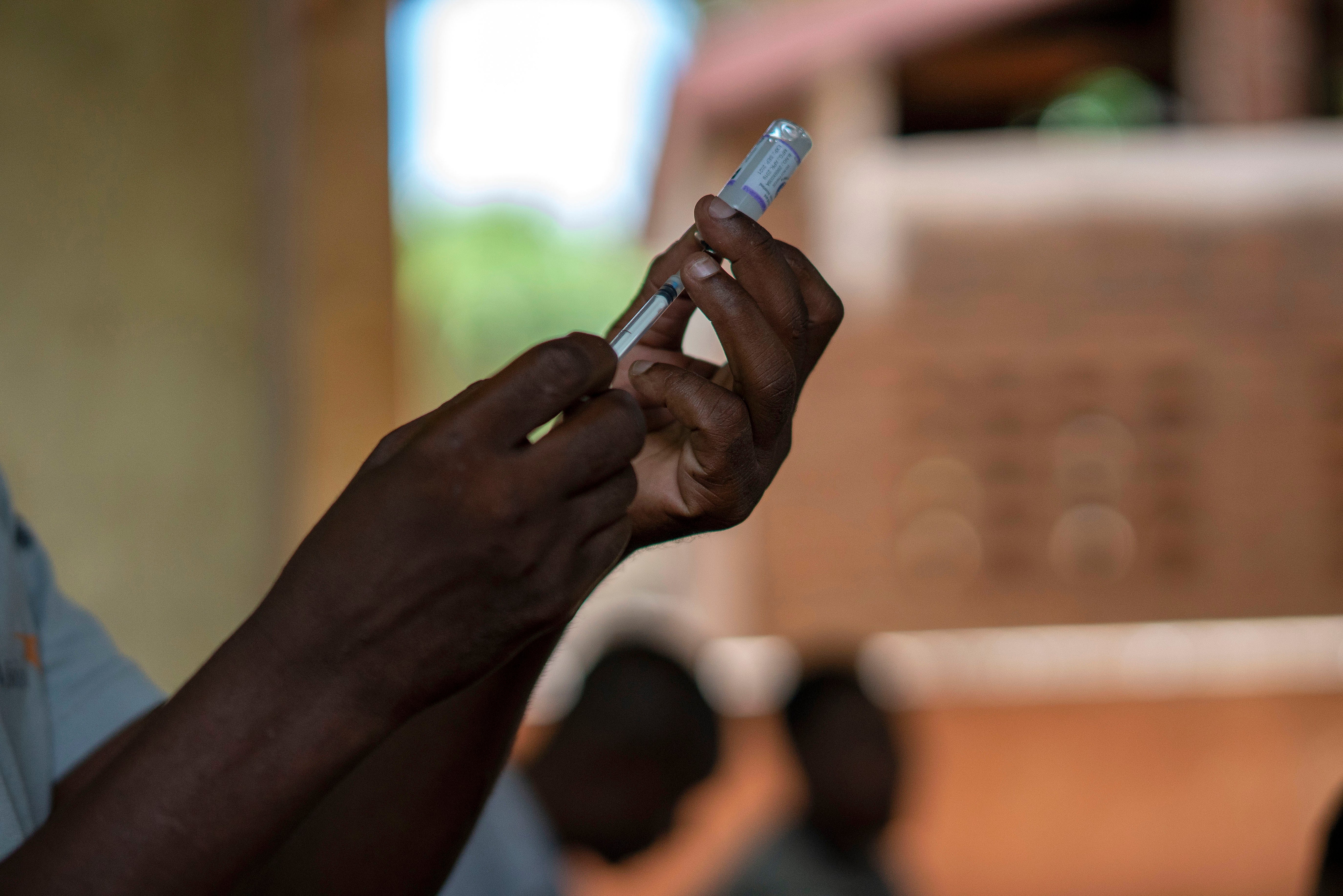UN experts say malaria shot should be used in Africa
The World Health Organization has recommended that the world’s first malaria vaccine be given to children across Africa, in a move officials hope will spur stalled efforts to curb the spread of the parasitic disease

Your support helps us to tell the story
From reproductive rights to climate change to Big Tech, The Independent is on the ground when the story is developing. Whether it's investigating the financials of Elon Musk's pro-Trump PAC or producing our latest documentary, 'The A Word', which shines a light on the American women fighting for reproductive rights, we know how important it is to parse out the facts from the messaging.
At such a critical moment in US history, we need reporters on the ground. Your donation allows us to keep sending journalists to speak to both sides of the story.
The Independent is trusted by Americans across the entire political spectrum. And unlike many other quality news outlets, we choose not to lock Americans out of our reporting and analysis with paywalls. We believe quality journalism should be available to everyone, paid for by those who can afford it.
Your support makes all the difference.The World Health Organization recommended Wednesday that the world’s first malaria vaccine should be given to children across Africa in a move officials hope will spur stalled efforts to curb the spread of the parasitic disease.
Following a meeting of the United Nations health agency's vaccine advisory group, WHO director-general Tedros Adhanom Ghebreyesus spoke of “a historic moment.”
"Today’s recommendation offers a glimmer of hope for the continent which shoulders the heaviest burden of the disease and we expect many more African children to be protected from malaria and grow into healthy adults,” said Dr. Matshidiso Moeti, the WHO's Africa director.
The WHO said its decision was based on results from ongoing research in Ghana, Kenya and Malawi that has tracked more than 800,000 children since 2019.
The malaria vaccine known as Mosquirix was developed by GlaxoSmithKline in 1987. While it’s the first to be authorized, it is only about 30% effective, requires up to four doses, and protection fades after just months.
Still, given the extremely high burden of malaria in Africa — where the majority of the world’s more than 200 million cases a year and 400,000 deaths occur — scientists say the vaccine could still have a major impact.
“This is a huge step forward,” said Julian Rayner, director of the Cambridge Institute for Medical Research, who was not part of the WHO decision. “It’s an imperfect vaccine, but it will still stop hundreds of thousands of children from dying.” Rayner said that the vaccine’s impact on the spread of the mosquito-borne disease was still unclear, but pointed to the coronavirus vaccines as an encouraging example.
“The last two years have given us a very nuanced understanding of how important vaccines are in saving lives and reducing hospitalizations, even if they don’t directly reduce transmission.”
Sian Clarke, co-director of the Malaria Centre at the London School of Hygiene and Tropical Medicine, said the vaccine would be a useful addition to other tools against the disease that might have exhausted their utility after decades of use, like bednets and insecticides.
“In some countries where it gets really hot, children just sleep outside, so they can’t be protected by a bednet,” Clarke explained. “So obviously if they’ve been vaccinated, they will still be protected.”
Clarke added that in the last few years little significant progress has been made against malaria. “If we’re going to decrease the disease burden now, we need something else.”